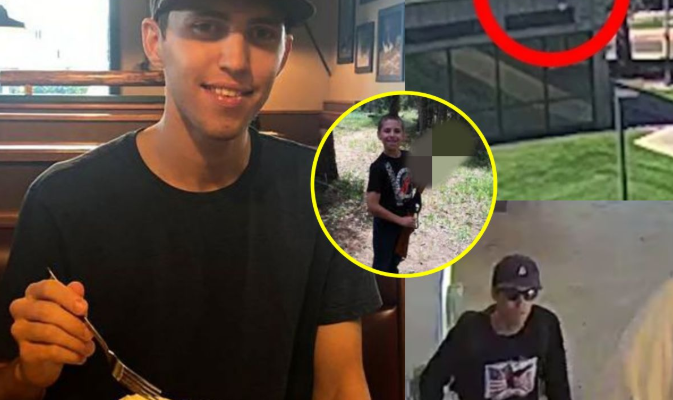In a stunning turn of events that has gripped the nation, Tyler Robinson, a 22-year-old Utah native, was arrested and charged with the murder of Charlie Kirk, a well-known conservative commentator and activist, just hours after Kirk’s tragic death. The shocking incident unfolded Wednesday afternoon on the campus of Utah Valley University, where Kirk was hosting his popular “Prove Me Wrong” debate series—a signature event that had drawn crowds and controversy since its inception.
Tyler Robinson (Photo via Google)
Eyewitnesses recall the moment with a mix of disbelief and horror. Kirk, 31, was engaging with students and faculty when a single shot rang out from the rooftop of an adjacent building. Chaos erupted as attendees scrambled for cover, and emergency responders rushed to the scene. Kirk was struck in the neck and, despite rapid medical intervention, was pronounced dead shortly thereafter.
Within hours, the news rippled across social media and cable networks. President Donald Trump, a close ally of Kirk’s and frequent guest on his platforms, issued a statement on Truth Social at 4:40 p.m. EST, expressing his condolences to Kirk’s wife, Erika, and their two young children. “Charlie was a patriot, a fighter, and a friend. America mourns his loss,” Trump wrote, echoing the sentiments of millions who followed Kirk’s work.
The investigation moved quickly. By Friday morning, authorities—working in tandem with federal agencies—announced the arrest of Tyler Robinson, who had turned himself in at the urging of his father. Robinson, described as a quiet but fiercely intelligent young man, grew up in Washington, Utah, and had recently moved to the Salt Lake area for work. Police sources say Robinson’s cooperation was “unexpectedly calm,” and that he arrived at the station accompanied by his father and legal counsel.
As details emerged, the public’s curiosity about Robinson intensified. Who was this young man accused of such a high-profile crime, and what could have motivated him? A former high school friend, speaking anonymously to Anna Betts of The Guardian, offered rare insight into Robinson’s personal life and political views. According to this friend, Robinson was the “only leftist” in a family known for its staunch Republican leanings. “He used to rant and argue about his family all the time, especially around sophomore year,” the friend recalled. “I knew he had strong political views, but I never thought it would even go near that far.”
This glimpse into Robinson’s formative years paints a picture of a young man at odds with his environment. The friend described how their relationship began to drift apart near the end of high school, a gradual separation fueled by ideological differences and the pressures of growing up in a politically divided household. “He was smart, no doubt about it. He had a 4.0 GPA and scored a 34 on the ACT—that’s the top one percent,” the friend said, adding that Robinson was always searching for something deeper, some way to make sense of the world.
Robinson’s academic achievements are notable, but it was his passionate engagement with political discourse that set him apart. Teachers remember him as a voracious reader, someone who challenged conventional wisdom and wasn’t afraid to speak his mind, even if it meant standing alone. “Tyler was never satisfied with easy answers,” one former teacher said. “He wanted to understand why people believed what they did, and he wasn’t afraid to challenge anyone—including his own family.”
The murder of Charlie Kirk has reignited debates about the intersection of political ideology, mental health, and public safety. Kirk, who amassed over five million followers on X (formerly Twitter) and more than a billion views on YouTube, was a lightning rod for both praise and criticism. His advocacy for conservative causes, his combative style, and his willingness to tackle controversial topics made him a hero to some and a target to others. In the aftermath of his death, tributes have poured in from across the political spectrum, with many emphasizing the need for dialogue and understanding in a time of deep national division.
For Robinson, the road ahead is uncertain. Legal experts say the case will hinge on motive, mental state, and the circumstances surrounding the shooting. Prosecutors are expected to pursue the case aggressively, given the national attention and the gravity of the crime. Robinson’s defense team has not yet released a statement, but sources close to the family suggest they are preparing for a lengthy and complex trial.
In the meantime, the community at Utah Valley University is grappling with the fallout. Students have organized vigils and discussion groups, seeking to honor Kirk’s legacy while processing the trauma of witnessing such violence on their campus. University officials have pledged to support students and faculty, emphasizing the importance of free speech and civil discourse.
The story of Tyler Robinson and Charlie Kirk is more than just a headlin

